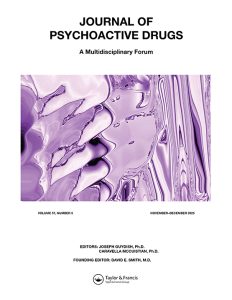- The Hero’s Journey and the Path of Recovery: Integrating Psychedelics into Traditional 12-Step Programs
- Stage One-The Ordinary World: Life in Recovery
- Stage Two-The Call to Adventure: Curiosity About Psychedelics in Recovery
- Stage Three-Refusal of the Call: Fear and Resistance in Psychedelic Exploration
- Stage Four-Meeting the Mentor: Guidance on the Path of Psychedelic Exploration
- Stage Five-Crossing the Threshold: Stepping Into the Unknown with Psychedelics
- Stage Six-Tests, Allies, and Enemies: Navigating Challenges, Stigma, and Antagonistic Views
- Stage Seven-The Approach to the Inmost Cave: Facing Deepest Fears in Psychedelic Exploration
- Stage Eight-The Ordeal: Confronting the Deepest Challenges in Psychedelic Healing
- Stage Nine-The Reward: Gaining Insight and Healing After the Ordeal
- Stage Ten-The Road Back: Integrating the Psychedelic Experience into Daily Life
- Stage Eleven-The Resurrection: Rebirth and Renewal After the Psychedelic Journey
- Stage Twelve-Return with the Elixir: Sharing Wisdom and Healing After the Psychedelic Journey
 In the Hero’s Journey, the Meeting the Mentor stage is when the hero, having wrestled with the fears and uncertainties of the call, encounters a guide or mentor who provides wisdom, support, and encouragement. This mentor helps the hero navigate the journey ahead, offering tools, advice, and often a sense of reassurance that the path is worth pursuing.
In the Hero’s Journey, the Meeting the Mentor stage is when the hero, having wrestled with the fears and uncertainties of the call, encounters a guide or mentor who provides wisdom, support, and encouragement. This mentor helps the hero navigate the journey ahead, offering tools, advice, and often a sense of reassurance that the path is worth pursuing.
For individuals in traditional 12-step recovery programs who are curious about integrating psychedelics into their healing journey, the Meeting the Mentor stage is pivotal. The mentor might not be a single individual but could manifest in different forms—a therapist, a trusted friend, an experienced guide, or even literature and research. At this stage, the individual begins to seek guidance, and in doing so, opens themselves up to new possibilities.
This article explores the Meeting the Mentor stage for those in recovery who are considering the therapeutic use of psychedelics. We’ll look at the different forms a mentor can take, the role of the mentor in providing reassurance and wisdom, and how this encounter helps individuals navigate the tension between traditional recovery practices and the integration of psychedelics.
The Role of the Mentor: Providing Reassurance and Clarity
The journey toward integrating psychedelics into a recovery process can be filled with fear and uncertainty. The individual in recovery may feel torn between their commitment to abstinence and the curiosity or pull toward deeper healing through psychedelics. The mentor’s role is crucial in this moment of inner conflict. Whether the mentor is an experienced therapist, a trusted friend, or a knowledgeable figure in the field of psychedelics, their guidance helps clarify the path forward.
One of the most important functions of the mentor is to provide reassurance. For someone in recovery, the idea of using a mind-altering substance like psychedelics can feel like walking a dangerous line. The mentor offers a grounding presence, helping the individual understand that exploring psychedelics in a therapeutic or ceremonial setting does not necessarily conflict with their recovery. In fact, the mentor often reframes the journey, helping the individual see psychedelics as a tool for healing rather than a substance to be feared.
This reassurance comes with the recognition that the mentor understands both sides of the equation—the world of recovery and the world of psychedelics. They are able to bridge the gap between these two realms, showing the individual that it is possible to explore psychedelics in a way that supports, rather than undermines, their sobriety.
Different Forms of Mentors: Therapists, Friends, and Resources
In this stage, the mentor may take many forms, and the guidance offered can come from a variety of sources. Here are a few common types of mentors that someone in recovery might encounter on their journey toward psychedelics:
1. The Psychedelic Therapist
A psychedelic therapist is often one of the most helpful mentors at this stage. These are licensed professionals trained in psychedelic-assisted therapy, where substances like psilocybin, MDMA, or ketamine are used in a controlled, therapeutic setting to address trauma, depression, addiction, and other mental health challenges. Psychedelic therapists have a deep understanding of how these substances can be used for healing, and they are often able to offer guidance on how to approach psychedelics safely while maintaining recovery goals.
The therapist acts as a mentor by helping the individual navigate the emotional, psychological, and spiritual terrain that psychedelics often bring to the surface. They can provide information about the scientific research supporting the use of psychedelics in mental health, address any concerns or fears, and help the individual understand how the therapeutic use of psychedelics differs from recreational or addictive use.
2. Trusted Friends or Fellow Travelers
Sometimes the mentor is a trusted friend, sponsor, or fellow traveler on the recovery journey who has successfully integrated psychedelics into their own healing process. These individuals can offer firsthand insight into what it’s like to explore psychedelics while remaining committed to the principles of recovery. They share personal stories, lessons learned, and practical advice for navigating the complexities of this journey.
These mentors provide the kind of peer-to-peer support that is often invaluable in recovery. By sharing their experiences, they show that it’s possible to walk the line between traditional recovery programs and psychedelic exploration. They can also offer emotional support, helping to reduce the feelings of isolation or judgment that the individual might fear from their recovery community.
3. Books, Research, and Educational Resources
For many people in recovery, the mentor comes in the form of books, research articles, and educational resources. As the individual explores the therapeutic potential of psychedelics, they may begin to read books by leading experts in the field, such as Michael Pollan’s How to Change Your Mind or Rick Doblin’s work with the Multidisciplinary Association for Psychedelic Studies (MAPS).
These resources provide valuable information about the science behind psychedelics, the history of their use in therapeutic settings, and the potential benefits for addiction recovery. Educational resources often act as an entry point, helping the individual better understand what psychedelics are, how they work, and how they can be used in a safe and intentional way. These materials offer a form of mentorship by dispelling myths and providing factual, research-based insights that can empower the individual to make informed decisions.
The Role of Spiritual Guides or Ceremony Leaders
For those who are drawn to the ceremonial or spiritual aspects of psychedelic use, a spiritual guide or ceremony leader may take on the role of mentor. In many indigenous cultures, psychedelics like ayahuasca or peyote have been used for centuries in ceremonial settings to facilitate healing, spiritual growth, and personal transformation. These ceremonies are often led by shamans or spiritual guides who have extensive knowledge of the substances and their potential for healing.
In this context, the mentor provides spiritual guidance, helping the individual prepare for the journey, set intentions, and navigate the profound spiritual experiences that often arise during a psychedelic ceremony. This type of mentor is particularly valuable for those who are seeking not only psychological healing but also spiritual awakening. The guide helps the individual understand that psychedelics can be a sacred tool for connecting with deeper aspects of the self, the universe, and a higher power.
Addressing Fears and Concerns
One of the key functions of the mentor in this stage is to help the individual address their fears and concerns about using psychedelics in recovery. These fears are often rooted in the belief that engaging with psychedelics could lead to a relapse or conflict with the principles of traditional recovery programs. The mentor, however, helps reframe these fears, offering a different perspective.
Through reassurance and guidance, the mentor helps the individual see that psychedelics, when used in a controlled, intentional setting, are not about escaping or numbing emotions. Instead, they are about confronting and healing emotional wounds, traumas, and deep-seated issues that may have contributed to addiction in the first place. The mentor emphasizes that this process is about self-exploration, growth, and healing—not about returning to addictive behaviors.
The mentor may also provide practical tools for preparation and integration. They might offer advice on how to prepare mentally, emotionally, and spiritually for the experience, as well as how to integrate the lessons and insights gained from the psychedelic journey into everyday life. This guidance helps the individual feel more confident in their decision and better equipped to navigate the challenges ahead.
The Importance of Trust
At the heart of the Meeting the Mentor stage is the development of trust. The individual in recovery must trust their mentor, whether that mentor is a therapist, a friend, or a spiritual guide. This trust is essential for allowing the individual to let go of their fears and embrace the possibility of transformation.
The mentor’s presence provides a sense of safety, showing the individual that they are not alone on this journey. With the support of the mentor, the individual begins to believe that they can explore psychedelics in a way that aligns with their recovery goals, offering the potential for deep healing without threatening their sobriety.
The Mentor as a Bridge Between Worlds
In the Hero’s Journey, the Meeting the Mentor stage is a critical turning point. For individuals in recovery who are curious about psychedelics, the mentor serves as a guide and a source of wisdom, offering the reassurance and tools needed to take the next step in their healing journey. Whether the mentor comes in the form of a psychedelic therapist, a trusted friend, or a spiritual guide, they help bridge the gap between the world of traditional recovery and the world of psychedelic exploration.
Through this mentorship, the individual begins to see that it is possible to use psychedelics as a tool for healing without jeopardizing their sobriety. With the support of the mentor, they gain the confidence to move forward on their journey, equipped with the knowledge, guidance, and trust they need to face the challenges ahead.




